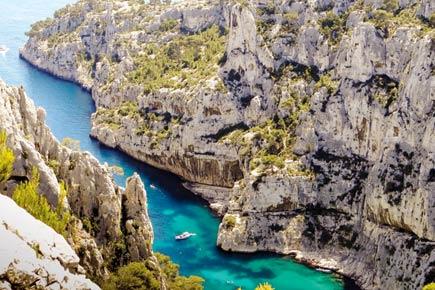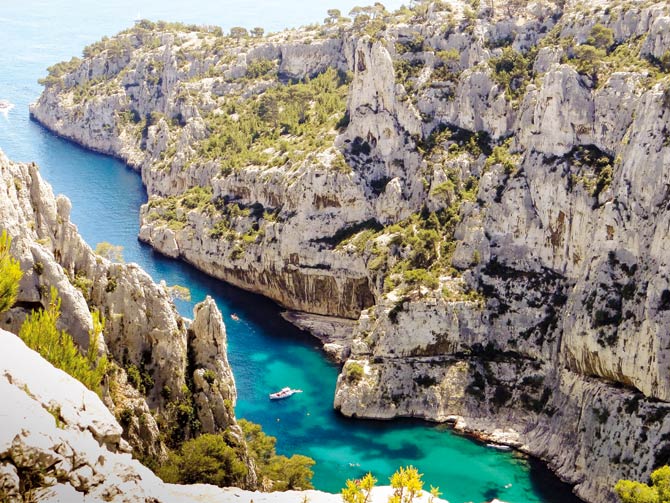The writer finds herself going back to the phrase, which locates the notion of history as something transient but still in the now


At the Parc National des Calanques, south of Marseilles, the four of us trekked through the stony mountainous landscape for about an hour until we arrived at the Mediterranean Sea. Pic/thinkstock
ADVERTISEMENT

But that was last night, or this morning, when all around me was the thickness of night and a confrontational moon that did not cease to be resplendent despite its state of waning in a star-studded blanket of sky. When I woke up, lured into consciousness by birdsong, the sun had plummeted us into a warmth otherwise reserved for high noon. First, I peeped through the window, then I stepped out and confronted our aloofness. We were bang in the centre of the expansive countryside, nestled somewhere in the south of France, close to Marseille. In the light of dawn it became clear to me why my artist friend, Julien Segard, had decided to inhabit this cabin, which continues to be a work in progress. I had last met him at his studio in Shahpur Jat, Delhi. On Tuesday evening, having spent the day gallavanting around Le Marais, in Paris, after an early morning flight from Berlin and hours spent pondering Picasso's animated sculptures, I had taken the TGV to Aix-en-Provence, where I was met by Julien.
On Wednesday, I was taken by Julien and Priyanka to the Parc National des Calanques, south of Marseilles. We were joined by the artist Prabhakar Pachpute, someone whose work I have long since admired, and the four of us trekked through the stony mountainous landscape for about an hour until we arrived at the Mediteranean Sea. The water was blue and cold and salty and still, and below us was a bed of shapely stones and mossy rocks. Julien found us a sea urchin, another girl spotted an octopus. I walked in gingerly at first, amazed at how cold and crisp and waveless the water seemed. Inch by inch, I immersed myself, as if I was baptizing myself.
Later, in Marseilles, our appetites whetted by the salt, we professed a unanimous preference for sea food. We sat in conspiratorial silence as we devoured the two massive platters in front of us, feasting on oysters, clams, mussels, snails, crabs, shrimp, and prawns, relishing every other succulent bite with sips of white wine.
My last night in Berlin on the 12th seemed already distant, like it had happened weeks ago. I had left that city reluctantly, with a soul-ache, promising to return.
Since I arrived in Europe, now exactly two weeks ago, I have found myself repeatedly returning to this single phrase: 'The History of Here'.
I love the taxonomy of it, because it locates the notion of history as not necessarily rooted in the past, but as something present, which, though transient, is still in the now. And while it's relatively easy to retrace one's steps to return to a specific moment in time, or a memory, it's somewhat harder to conceive of everything that had to have happened, that had to have passed, that was either pre-destined, or was the consequence of free will, in order to deliver you to the here and the now. And I imagine that the feeling of grace, or the possibility of ecstasy lies in constantly deliberating on the generosities of the universe that have led you wherever you now find yourself. I imagine this is why it is possible for humankind to experience hope. I imagine this is why the composer/musician Ali Morali, while performing in Kassel, at Documenta 14, said what he did as an apology for seeming hopeful: "As a refugee of war, I cannot help but be an optimist."
Deliberating on the life and times of Everywoman, Rosalyn D'Mello is a reputable art critic and the author of A Handbook For My Lover. She tweets @RosaParx Send your feedback to mailbag@mid-day.com
 Subscribe today by clicking the link and stay updated with the latest news!" Click here!
Subscribe today by clicking the link and stay updated with the latest news!" Click here!






